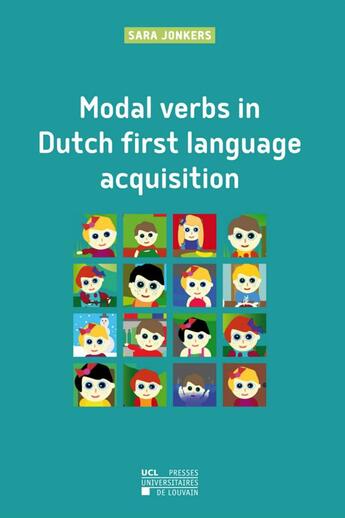Des idées de lecture pour ce début d'année !
Passionné(e) de lecture ? Inscrivez-vous
gratuitement ou connectez-vous pour rejoindre la
communauté et bénéficier de toutes les fonctionnalités du site !

Dutch modal verbs, kunnen ('can'), moeten ('must'), mogen ('may'), willen ('will'/'want'), zullen ('shall'/'will'), and hoeven ('need') are complex, semantically, morphologically, and syntactically. Therefore, one could expect that modals occur only rarely in early child language.
Surprisingly however, children as young as 2 years old use modal verbs rather frequently in their spontaneous speech. But do these early modal verbs already have the same semantic, morphological, and syntactic characteristics as in adult speech? I answer this questions through the investigation of corpus data, focusing on form and structure, and through the analysis of experimental data, focusing on the meanings of Dutch modals. Looking into the acquisition of modal verbs not only gives insight in how children build complex utterances, but also in how cognitive notions as necessity and possibility develop linguistically.
Il n'y a pas encore de discussion sur ce livre
Soyez le premier à en lancer une !

Des idées de lecture pour ce début d'année !

Si certaines sont impressionnantes et effrayantes, d'autres sont drôles et rassurantes !

A gagner : la BD jeunesse adaptée du classique de Mary Shelley !

Caraïbes, 1492. "Ce sont ceux qui ont posé le pied sur ces terres qui ont amené la barbarie, la torture, la cruauté, la destruction des lieux, la mort..."